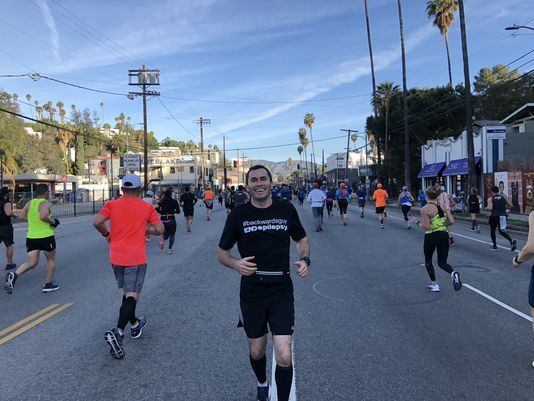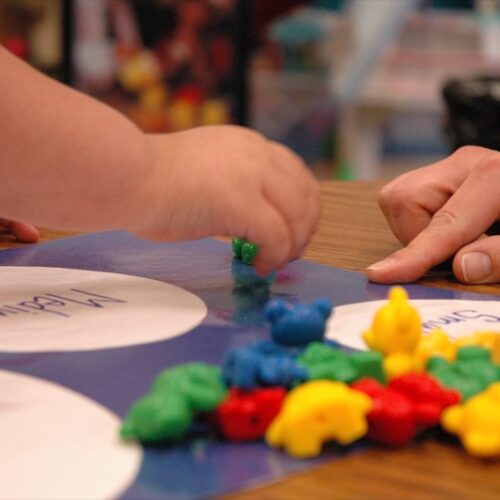
26.2 Miles, In Reverse: ‘Backwards Marathoner’ Aims To Raise Awareness, Set World Record
Listen
Loren Zitomersky is hoping to break a world record at the Boston Marathon on Monday. But Kenyan Geoffrey Mutai, who ran it in just over two hours in 2011, has nothing to worry about.
That’s because Zitomersky is aiming to break the backwards marathon record — he’ll run all 26.2 miles facing the starting line, with a goal of raising over $100,000 for the Epilepsy Foundation.
Here & Now‘s Robin Young talks with Zitomersky about the hows and whys of the feat.
“When I run backwards in these races, yes, everybody is staring at me, which is always interesting,” he says. “When I’m running backwards and people are running forwards and I pass them, there’s that moment where we’re face-to-face, and I get all kinds of reactions.”
Interview Highlights
On why he wants to raise money for the Epilepsy Foundation
“I’ve been raising money and awareness for epilepsy for the last 20 years. I lost my brother, Brian, to epilepsy before I was born, and the epilepsy community helped my dad so much during his time of need that my dad felt he wanted to give back to that community. Over the last 20 years, we’ve raised over $300,000 for the Epilepsy Foundation, and I had told myself that if I could qualify for the Boston Marathon, that I would do something big for Boston where I could raise as much money and awareness outside of my network as possible. And I qualified for Boston. I went on the Guinness Book of World Records website, and I stumbled upon the fastest marathon ever run backwards, which is three hours, 43 minutes and 39 seconds, which is about an eight and a half minute per mile pace, and I said, ‘I can do that.’ “
On the challenges of running backwards
“Well, since I made the decision to attempt this last June, I have ran just about 650 miles backwards. So at this point I’m pretty much as much of an expert at backwards running as possible. And yes, I have fallen a couple times. I ran backwards into a tree and cut up my back. I’ve dealt with all sorts of ailments and injuries with my muscles. For anyone who’s run backwards, they know it’s really hard, so much harder than running forwards.
“So with running backwards it’s really tough on your calves, quads, glutes and feet, and I really think it’s difficult because it’s just not a natural form of movement. It uses a lot more smaller muscles as opposed to bigger muscles, and you know, we’re just not used to moving in a backwards manner, so I basically had to retrain my body to do this.
“When I’m out running by myself, I am looking behind me so basically my head’s like on a swivel, and so yeah, it does bother my neck, but I think, you know, all the months and miles backwards running my neck has gotten used to it. For the Boston Marathon, I’ll have a spotter with me. He’ll basically be the eyes that I don’t have in the back of my head. We came up with a system where he gives me audible commands. Basically telling me to move right, move left, and if it looks like I’m going to fall or run into something he can physically grab me.”
Copyright 2018 NPR/WBUR
Related Stories:

How does climate affect your life? Tri-Cities survey open now
Cities, towns and counties are starting to plan for a future with climate change. Now, the Tri-Cities area is asking people about regional hazards and historical trends. (Credit: Simon Foot

Whitman County reports first flu-related death of the season
Hospitalman Yenifer Gutierrez, left, and Hospitalman Brashea Ojeda treat COVID patients in the ICU Aboard USNS Comfort in April of 2020. Influenza deaths surpassed COVID-19 deaths for this first time

Washington state reports 7-year peak in influenza-related deaths
The Washington state Department of Health reported on March 20th that influenza activity reached its highest levels in seven years, with the most flu-related deaths since the 2017-2018 flu season.














